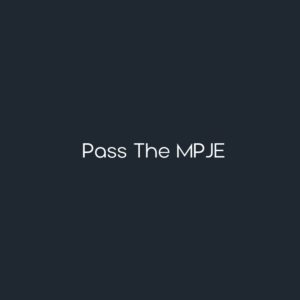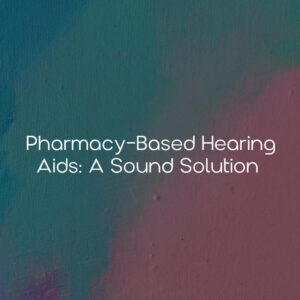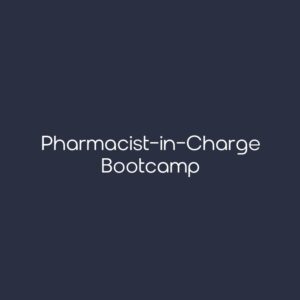Get Off the Sidelines: How to Engage in Pharmacist-Led Health Coaching

Get Off the Sidelines: How to Engage in Pharmacist-Led Health Coaching
This course is designed to empower pharmacists with the knowledge and skills to play a vital role in promoting health and well-being. It covers a range of topics, including behavior change, motivational interviewing, communication techniques, and video case studies. This unique course integrates the pharmacist’s medication expertise with the art of health coaching, allowing participants to foster strong patient-pharmacist relationships and enhance the overall quality of care they provide. Whether you’re an established pharmacist looking to expand your role in patient care or a recent graduate eager to make a difference in healthcare, this course will provide you with the tools needed to make a positive impact in the lives of your patients.
Upon successful completion of this application-based CPE course, pharmacists should be able to:
1. Define health coaching.
2. Explain the differences between a coach approach vs. an expert approach.
3. Describe the evolving role of health coaching in healthcare and pharmacy practice.
4. List the key components of the health coaching process.
5. Recognize how to establish trust and build rapport within a coaching relationship.
6. Identify the role of empathy in the coaching relationship.
7. Describe the importance of cultural humility in health coaching.
8. Review the skills of reflective listening and open-ended inquiry.
9. Discuss the use of appreciative inquiry and building self-efficacy in health coaching.
10. Describe the six stages of change in the Stages of Change Model.
11. Recognize the role of motivational interviewing in behavior change.
12. Explain the guiding spirit of motivational interviewing and its person-centered approach to behavioral change.
13. Review the four fundamental tasks of motivational interviewing.
14. Express how effective listening skills improve communication and engagement with patients.
15. Identify an individual’s readiness and “language of change” in pursuing a specific action.
16. Summarize the importance of differentiating between “change talk” and “sustain talk” in modifying behaviors.
17. Discuss OARS and its role in enhanced patient interactions.
18. Describe how to give information in a more effective manner using Ask. Offer. Ask.
19. Evaluate a patient’s readiness for health behavior change in a coaching session.
20. Examine the coach’s ability to establish rapport, trust, and a patient-centered atmosphere during a coaching session.
21. Differentiate evidence-based strategies to support behavior change and action planning in a coaching session.
22. Determine the SMART goal elements in a coaching session.
23. Analyze a coaching session to identify social determinants of health (SDoH) and their impact on client outcomes.
24. Review health coach credentialing options for pharmacists.
25. Explain strategies to operationalize health coaching within a community-based pharmacy.
26. Describe how to document the outcome of a pharmacy-provided health coaching encounter.
27. Summarize an appropriate billing strategy for a pharmacy-provided health coaching service.
Nora Stelter, PharmD
Associate Professor, Pharmacy Practice
Drake University College of Pharmacy and Health Sciences
Becky Lang, EdD, DH, RMCHES
Certified Health Coach, MINT Member
Founder, LifeStrategies
Betthany (Beth) Thomas, PharmD, RPh
CEO
BMT Consulting Services, LLC
Wendy Mobley-Bukstein, PharmD, BCACP, CDCES, CHWC, FAPhA
Associate Professor of Pharmacy Practice
Drake University
Elizabeth Skoy, PharmD
Professor
NDSU College of Pharmacy
Madeline Clark, PharmD, MBA
Pharmacy Resident
University of North Carolina/Moose Pharmacy
Laura Rhodes, PharmD, BCACP
Assistant Professor
UNC Eshelman School of Pharmacy
Nora Stelter, Becky Lang, Wendy Mobley-Buckstein, Elizabeth Skoy, Madeline Clark, and Laura Rhodes have no relevant financial relationships with ineligible companies to disclose.
Betthany (Beth) Thomas reports she is an employee of Medtronic (Diabetes Unit). All relevant financial relationships have been mitigated.
This is not an ACPE-defined Certificate Program; learners who complete this course will receive ACPE CPE credit but will not be awarded completion of a Certificate Program.
Course fee includes course, course materials, and CPE credit submission to CPE Monitor.
Course is non-refundable.
Initial Release Date: March 1, 2024
Planned Expiration Date: March 1, 2027
Copyright 2024, CEimpact. All Rights Reserved. Any reproduction of this course without express permission is strictly forbidden.
![]() CEImpact is accredited by the Accreditation Council for Pharmacy Education as a provider of continuing pharmacy education. Obtain CPE credit by completing the course, followed by the exam and evaluation (if applicable). Once successfully completed, your course will appear in your Completed Courses tab. Access your CPE statement of credit at www.MyCPEMonitor.net.
CEImpact is accredited by the Accreditation Council for Pharmacy Education as a provider of continuing pharmacy education. Obtain CPE credit by completing the course, followed by the exam and evaluation (if applicable). Once successfully completed, your course will appear in your Completed Courses tab. Access your CPE statement of credit at www.MyCPEMonitor.net.
¹CEImpact provides you with two (2) opportunities to complete the exam. The learner will not receive CPE credit after two failed attempts.
Additional information
| Duration | 8h 0m |
|---|---|
| Topic Designator | Operations |
| ACPE | Yes |
| ACPE Topic | 04 Pharmacy Administration |
| Role | Pharmacist |
| Media-Type | On-Demand |
| Release Date | 3/1/24 |
| CEUs | 0.8 |
| Rating | 5 |
| ACPE Number | 0107-0000-24-060-H04-P |
$199.00




